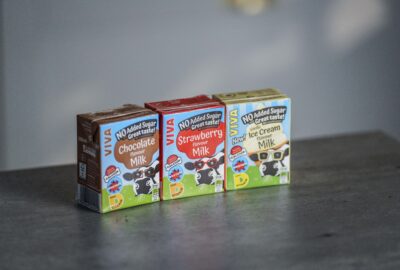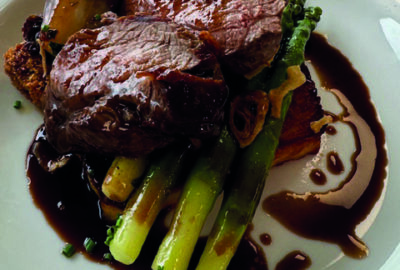From footballer to foodie, Ben Murphy has risen through the ranks at breakneck speed to secure the head chef role at Launceston Place in London. He chatted to Stir it Up about his meteoric rise…
Your original career plan was to become a professional footballer. Tell us about that.
As a young boy my dream was to become a professional footballer, and I was on the right track until I broke my collarbone at age 16, which took me out the game completely. To this day, I’m a strong believer that everything happens for a reason. I guess if I didn’t break my collarbone, my direction would have been very different, but I certainly wouldn’t be where I am today without it happening.
How did your football training help your subsequent career as a chef?
Food technology was the only subject I enjoyed/turned up to at school. I gained a buzz from doing practical lessons, but always struggled on the academic side. Football training helped me gain the discipline, focus, patience and most importantly the work ethic I needed to be successful as a chef.
The Michelin Guide describes your dishes as “big on originality and artfully presented”.
From where do you draw inspiration for your dishes?
Flavour for me is the most important part of cooking, followed by presentation. Guests eat with their eyes, and if something doesn’t look appealing, I’d already be losing. My team and I create menus which evolve with the seasons and are big on flavour, but presented beautifully and consistently (even with a fully booked restaurant). I’ve learnt to stay within arm’s length of what I know and what I feel I’m good at.
In an age of Instagram, is presentation becoming more important that actual taste?
I feel Instagram is a great platform for visual aspects of food and it’s all about judging the appearance of a dish. Half my followers on Instagram have dined or are planning to come and taste my food. On my Instagram, the photos are taken just before the plate arrives at the table, so what you see is what you get when you eat in the restaurant.
How important are student competitions to aspiring chefs?
I was always involved in competitions at college. It’s great for networking, but most importantly it helped me build confidence and improve my work ethic, while working under pressure.
How did the publicity of winning the Breakthrough Chef of the Year and Chef to Watch accolades help secure your latest appointment?
Winning the awards was great. It helped put me on a platform with other chefs who are pushing hard in the industry also. I got lucky with my appointment at Launceston Place. But lucky in the sense that D&D have invested money and time into the team and me. Hopefully this will pay off soon.
As a young head chef, is it difficult to manage sous chefs who are older than you? What tactics do you employ?
Lucky for me, I’ve never had a problem with staff shortage or management in that way. My team are amazing. I treat them all with respect and ensure they only work four days per week, which does mean I have to work a section, but I enjoy doing it. This means they are well rested, and always push hard and remain focused when they are in the kitchen, which is always the case. I’ve had nearly the same team for over two years now.
You’re being lauded as the man to regain the Michelin star at Launceston Place. How important is that to you – and how do you intend to achieve it?
I have no idea. I’ve never achieved one before so I honestly couldn’t say. We just continue to improve what we do every day.
What is the single most useful piece of advice you’ve been given in your career?
My mentor Pierre Koffmann says: “Cook what you love to eat”.
You’ve been quoted as saying “Chefs interacting is the next big thing in dining”. What is the experiential dining experience for customers at Launceston Place?
I really do think so. When I eat out, there is nothing better than meeting the person who has spent hours cooking your food. It’s a little touch that guests remember and I feel it makes everyone’s experience that little bit more special.
Traditional Christmas dinner – or thinking outside the box. What will be featuring on your festive menu this Christmas?
I will be putting grouse and venison on my menu. I’ll save the turkey for my mum when I’m off for Christmas.
And now for three questions that we ask all of our Leading Lights…
1. What are your three kitchen secrets?
“I have a sign in the kitchen to remind my team to love and perfect what they do, to focus, and to give 100% at all times (as well as my motto ‘Keep it Moving!’).
2. What is your favourite ingredient and why?
Salt – without seasoning food, most of the ingredients we cook with would be bland!
3. Please could you share your favourite festive recipe, along with your reasons for choosing it?
My Christmas Pudding Soufflé recipe as it hasn’t been done before, and you get the flavour of Christmas pudding but with a lighter texture.



